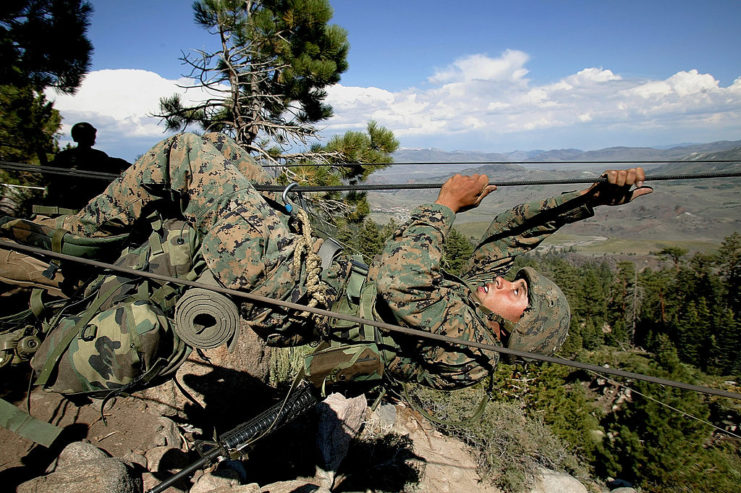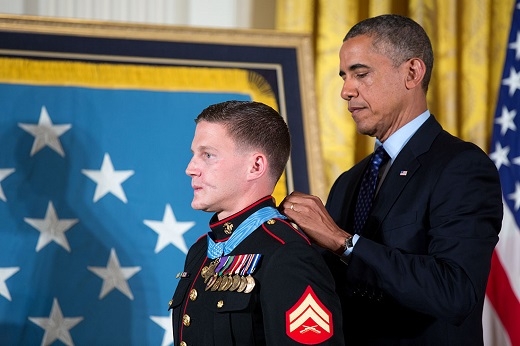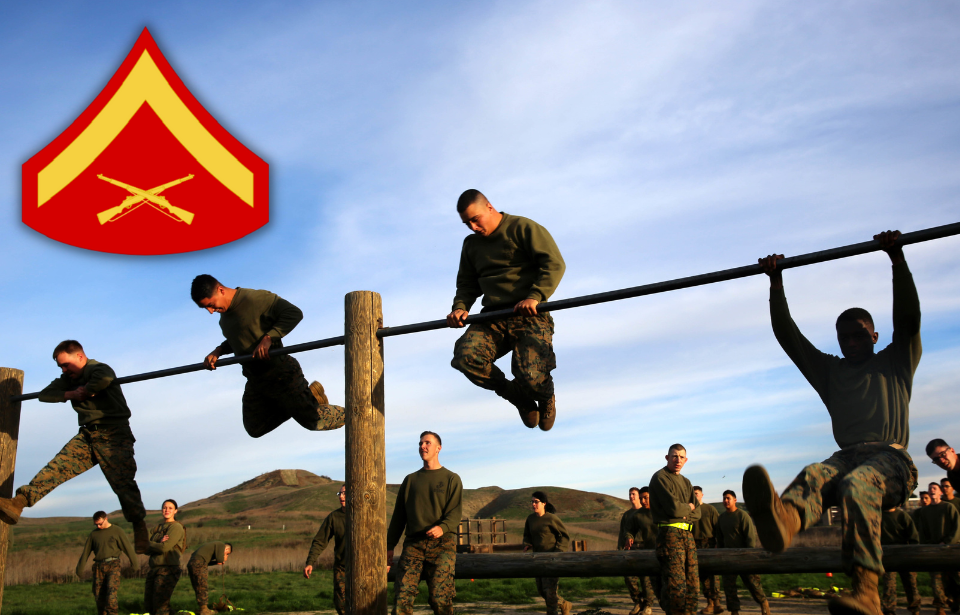When it comes to toughness, strength and skill, the US Marine Corps is regarded as the most intense and high-achieving branch of the US military. Even passing the grueling 12-week basic training program and 54-hour field survival challenge doesn’t guarantee recruits will be promoted to what’s widely considered the service’s “best” rank: lance corporal.
Where does the rank come from?
The third military rank in the Marine Corps, lance corporal is a relatively common title among those who serve. Above private first class, but below corporal, it’s the highest rank a Marine can hold without being a non-commissioned officer. It’s given to those who demonstrate strong leadership abilities – in fact, the title itself translates to “leader.”
The rank is the amalgamation of two ancient military terms: “corporal,” which comes from the Italian phrase capo corporale (“head of the body”), and lancepesade (“broken lance” or “broken spear”). Together, it can be translated to mean “one who has broken a lance in combat.” An individual who holds this rank is, therefore, an accomplished warrior and military leader.

In medieval Europe, the term referred to a small unit of soldiers and is still used to designate leadership of smaller units. In the United States, the title of lance corporal was used as early as 1802 and was officially recognized in 1821. By 1965, the US Army retired the rank and the insignia was amalgamated into the private first class designation.
Alternatively, the ranks of lance corporal and lance sergeant were used informally by the Marine Corps since the 1830s. By 1917, the ranks had become increasingly redundant, thanks to a new rank: private first class. While lance sergeant fell out of use, lance corporal continued to be.

The lance corporal rank remained in the Marines into the 1930s, but was infrequently used until it was officially instated as a rank in 1958, following the Career Compensation Act of 1949. Today, it speaks to the storied and unique history of the Marine Corps, with those wearing the rank’s chevron with crossed rifles doing so with pride.
What does it take to become a lance corporal?
The title of lance corporal can be somewhat controversial among Marines. While many have earned the rank for being extraordinary leaders and accomplished warriors, others infamously involved themselves in all sorts of mischief. One who truly embodied what it means to be a lance corporal is Medal of Honor recipient, Kyle Carpenter.

Carpenter was serving overseas in Afghanistan in November 2010 when the enemy launched a daytime attack and began to throw hand grenades toward him and fellow Marine, Nick Eufrazio, who were both stationed on a rooftop security post. Without any regard for his own safety, Carpenter threw himself toward one, shielding his partner from the explosion.
More from us: Fortis Fortuna Adiuvat: Does Fortune Actually Favor the Bold?
Carpenter, who retired with the rank of corporal, suffered the brunt of the blast. He lost his right eye and most of his teeth in the explosion. His jaw and right arm were also shattered, and while he had to undergo dozens of surgeries, he survived his injuries.
In 2014, he was awarded the Medal of Honor for his selfless service, becoming the eighth living recipient for service performed in Afghanistan. Like many lance corporals before him, his rank spoke to his legendary potential both on and off the battlefield – a trademark of true Marine Corps excellence.
